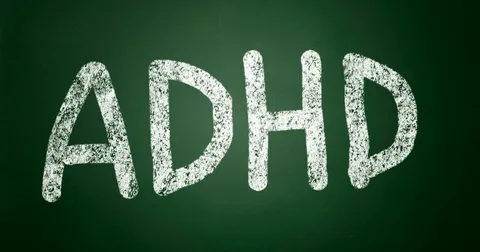
Attention Deficit Hyperactivity Disorder (ADHD) is a neurodevelopmental disorder that affects individuals of all ages, but its impact can be particularly challenging during the teenage years. Adolescence is a time of significant physical, emotional, and social development, and navigating this period with treatment ADHD presents unique obstacles and opportunities. In this comprehensive guide, we’ll explore the challenges faced by teenagers with ADHD, strategies for managing symptoms, and ways to support their journey through adolescence.
Understanding ADHD in Teenagers
1. Overview of ADHD
ADHD is characterized by persistent patterns of inattention, hyperactivity, and impulsivity that interfere with daily functioning and development. While the exact causes of ADHD are not fully understood, research suggests that a combination of genetic, environmental, and neurological factors contributes to its development.
2. Prevalence in Teenagers
ADHD is one of the most common neurodevelopmental disorders in children and adolescents, with an estimated prevalence of around 7% in teenagers worldwide. However, many cases may go undiagnosed or untreated, leading to significant challenges in school, relationships, and overall well-being.
3. Impact on Adolescent Development
Teenagers with ADHD may experience a range of difficulties that affect various aspects of their lives:
- Academic Challenges: Inattention and impulsivity can lead to poor academic performance, difficulty staying organized, and trouble following instructions.
- Social and Emotional Issues: ADHD symptoms can interfere with social interactions, leading to feelings of isolation, rejection, and low self-esteem.
- Risk-Taking Behavior: Impulsivity and sensation-seeking tendencies may increase the likelihood of engaging in risky behaviors such as substance abuse, reckless driving, or unprotected sex.
- Family Dynamics: ADHD can strain family relationships due to misunderstandings, conflicts, and challenges in communication and discipline.
Managing ADHD Symptoms in Teenagers
1. Medication
Medication is often a cornerstone of ADHD treatment and can help alleviate symptoms such as inattention, hyperactivity, and impulsivity. Common medications for ADHD include stimulants (e.g., methylphenidate, amphetamine) and non-stimulants (e.g., atomoxetine, guanfacine). However, medication should be prescribed and monitored by a qualified healthcare professional to ensure safety and effectiveness.
2. Behavioral Therapy
Behavioral therapy focuses on teaching teenagers with ADHD practical skills and strategies to manage their symptoms and improve their functioning. Cognitive-behavioral therapy (CBT), behavioral coaching, and social skills training are among the approaches commonly used to address specific challenges such as organization, time management, impulse control, and social skills.
3. Academic Support
Educational accommodations and support services can help teenagers with ADHD succeed academically. These may include:
- Extended time on tests and assignments
- Preferential seating in the classroom
- Use of assistive technology (e.g., text-to-speech software, graphic organizers)
- Individualized education plans (IEPs) or 504 plans outlining specific accommodations and modifications
4. Lifestyle Changes
Healthy lifestyle habits can complement medical and behavioral interventions in managing ADHD symptoms. Encourage teenagers to:
- Get regular exercise, which can improve focus, mood, and overall well-being
- Maintain a balanced diet rich in nutrients and low in processed foods and sugary snacks
- Establish consistent sleep routines to ensure adequate rest and recovery
- Limit screen time and digital distractions, especially before bedtime
5. Building Support Networks
Supportive relationships with family, friends, teachers, and healthcare providers play a crucial role in helping teenagers with ADHD thrive. Encourage open communication, empathy, and understanding, and seek out support groups, online forums, or peer mentoring programs where teenagers can connect with others facing similar challenges.
Supporting Teenagers with ADHD
1. Encourage Self-Advocacy
Empower teenagers with ADHD to advocate for themselves by:
- Understanding their diagnosis and treatment plan
- Communicating their needs and preferences to teachers, peers, and healthcare providers
- Seeking help and resources when needed
- Building resilience and coping skills to navigate challenges
2. Foster Independence
Promote independence and responsibility by gradually increasing teenagers’ autonomy in managing their ADHD symptoms, academic tasks, and daily routines. Provide guidance and support as needed while allowing opportunities for self-directed problem-solving and decision-making.
3. Focus on Strengths and Interests
Help teenagers with ADHD identify and cultivate their strengths, talents, and interests. Encourage them to pursue activities and hobbies that engage their passions and talents, boost their confidence, and provide opportunities for success and fulfillment.
4. Set Realistic Expectations
Set realistic expectations for teenagers with management ADHD, taking into account their individual strengths, challenges, and developmental stage. Celebrate progress and effort, rather than focusing solely on outcomes, and provide constructive feedback and encouragement to help them learn and grow.
Conclusion
Navigating adolescence with ADHD presents unique challenges and opportunities for teenagers, their families, and their support networks. By understanding the impact of ADHD on adolescent development, implementing effective strategies for managing symptoms, and providing comprehensive support, teenagers with ADHD can thrive and reach their full potential. With patience, compassion, and collaboration, we can empower teenagers with ADHD to navigate adolescence with confidence, resilience, and success.
